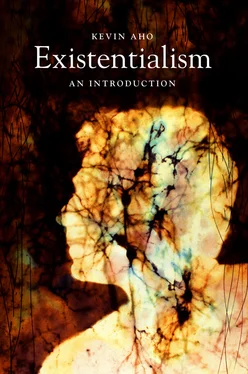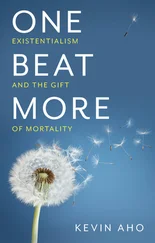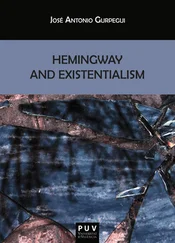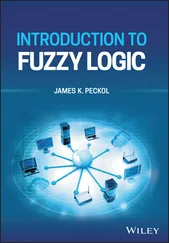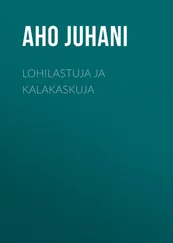Kevin Aho - Existentialism - An Introduction
Здесь есть возможность читать онлайн «Kevin Aho - Existentialism - An Introduction» весь текст электронной книги совершенно бесплатно (целиком полную версию без сокращений). В некоторых случаях можно слушать аудио, скачать через торрент в формате fb2 и присутствует краткое содержание. Год выпуска: 2013, ISBN: 2013, Издательство: Polity, Жанр: Философия, на английском языке. Описание произведения, (предисловие) а так же отзывы посетителей доступны на портале библиотеки ЛибКат.
- Название:Existentialism: An Introduction
- Автор:
- Издательство:Polity
- Жанр:
- Год:2013
- ISBN:978-0745651422
- Рейтинг книги:3 / 5. Голосов: 1
-
Избранное:Добавить в избранное
- Отзывы:
-
Ваша оценка:
- 60
- 1
- 2
- 3
- 4
- 5
Existentialism: An Introduction: краткое содержание, описание и аннотация
Предлагаем к чтению аннотацию, описание, краткое содержание или предисловие (зависит от того, что написал сам автор книги «Existentialism: An Introduction»). Если вы не нашли необходимую информацию о книге — напишите в комментариях, мы постараемся отыскать её.
Existentialism: An Introduction
Existentialism: An Introduction — читать онлайн бесплатно полную книгу (весь текст) целиком
Ниже представлен текст книги, разбитый по страницам. Система сохранения места последней прочитанной страницы, позволяет с удобством читать онлайн бесплатно книгу «Existentialism: An Introduction», без необходимости каждый раз заново искать на чём Вы остановились. Поставьте закладку, и сможете в любой момент перейти на страницу, на которой закончили чтение.
Интервал:
Закладка:
On Frankfurt's view, without the capacity for second-order volitions a human being cannot properly be called a ‘person’ or ‘self.’ He describes such a creature as a “wanton” (11), referring to someone who is pulled around by his or her desire for certain things without any evaluative recognition that he or she actually wants to do these things or may prefer to do other things. In this sense, the ‘wanton’ does not care about his or her will. But this does not mean that the ‘wanton’ is an unfeeling automaton or that he or she is irrational or not self-aware. It simply means that he or she is unconcerned about making evaluative judgments about the desirability of his or her first-order desires and whether or not these desires are worthy of being acted upon. He or she simply follows whatever factical desire is strongest and is wholly “indifferent” (13) to the act of evaluating them. But in not taking a stand, interpreting, or giving meaning to his or her desires, the ‘wanton’ does not manifest freedom of the will and, consequently, is not engaged in the struggle for self-creation. Indeed, the ‘wanton’ has no identity at all apart from his or her first-order desires.
The American philosopher Dean Zimmerman suggests that Camus may be offering a version of Frankfurt's ‘wanton’ with the character Mersault in his famous novel The Stranger (see Solomon 2012, 417–418). Although he is keenly self-aware, Mersault's actions seem to be entirely dictated by whatever sensual impulse is strongest without any indication of whether or not he actually wants to do these things. He is drawn to the ocean for a swim on a hot day, to the warm buzz of a glass of wine or a cigarette, to dozing off with an afternoon nap, to kissing his girlfriend, Marie, when the feeling arises. But he has no evaluative ‘second-order’ volitions about these impulses and appears completely callous and unconcerned with how acting on them affects others or gives shape to his identity. Even when he commits the act of murder, it is described in terms of the pull of a random impulse: “To stay, or to make a move,” says Mersault, “it came to much the same thing” (Camus, 1946, 73). What frustrates the reader is that there is no remorse in Camus's character; he appears trapped in the impulses of the present moment without the ability to interpret or give meaning to them. He fails to see how second-order interpretative acts constitute the self by orienting or guiding him toward goals and projects that he hopes to realize in the future. Indeed, when Mersault admits he has “always been too absorbed in the present moment” (127), this not only reveals an unwillingness or inability to engage in the struggle for self-realization; it also reveals the unique temporal structure of selfhood.
Existentialists tend to interpret the self as being constituted by time. But against the standard view of clock-time, where time is interpreted as something external to us that can be measured, saved, or lost (as in the expression, ‘I just don't have the time’), existentialists put forth the idea that time is not something we have ; it is what we are . We live our time. In Heidegger's words, the self is a “thrown-project” (1962, 185), that is, we have been thrown into a past, into a factical situation that limits and constrains us, yet we simultaneously interpret and give meaning to this situation by projecting forward into possibilities that are always shaping and reshaping our identities. Understood this way, the self exists in the future to the extent that we understand or interpret who we are in terms of possibilities we project for ourselves. But in this forward-directed projection we are also circling back, bringing our factical situation (or past) with us. Heidegger refers to this aspect of existence in terms of the Greek expression ek-stasis , as “stepping beyond” or “standing outside” ourselves (1982, 267). In the course of our lives, we are continuously moving back and forth, stretching into the future as we reinterpret and redefine ourselves against the limitations and demands of our facticity. In this way, the temporal structure of ‘thrown projection’ provides an orienting framework or horizon for me; it shows me where I stand, what I care about, and what is valuable and worth pursuing as my life moves forward, and it is this horizon that is missing in the ‘wanton.’ A character like Mersault is trapped in the present. He is pulled around by whatever first-order desire or impulse is strongest and is indifferent to whether or not these desires are worthwhile or how acting on them constitutes a particular identity. Without second-order volitions, he is unable to take a stand on his existence or to evaluate and interpret his actions. In this regard, he is not a self because he is unable to realize or create the kind of person he wants to be in the future.
It is important to note here the extent to which the existentialist account of the self — as an ongoing, self-interpreting activity or process — has influenced recent Anglophone philosophy and the broader humanities and social sciences in general. It not only offers an alternative to overly reductive assumptions regarding selfhood and agency that modern philosophy has inherited from Descartes; it is also deeply attentive to the ways in which our choices and actions are both self-defining and socially embedded. By rejecting various versions of substance ontology, the existentialist self cannot be conceived of as a ‘thinking thing,’ the willing, desiring, and perceiving subject that exists prior to any experience. Nor can it be conceived physically, as the aftereffects of neurophysiological or brain states that can be observed from a perspective of scientific objectivity (Baynes 2010, 441). Indeed, there is no substantial self at all. The self exists only in its own self-interpretations. On this view, we are thrown into a social situation or world that shapes our identity. But we are not simply passive social constructions. We also have the ability to transcend our facticity, that is, to actively shape our own identity by interpreting the values and meanings of our situation and tying them together into a cohesive and unified story or narrative. The self, then, is constituted by the continuous, open-ended process of choosing and pulling together the social interpretations that we care about and that are made available by the situation we grow into. Thus, it is not the substantial or thing-like attributes that define us. Rather, what makes us who we are is the narrative unity and coherence of the self-interpretations we take over in composing our own life story (Guignon 2004a, 127).
Although there are a number of prominent Anglophone philosophers who have developed this narrative conception of selfhood, including Harry Frankfurt, Charles Guignon, Christine Korsgaard, Alasdair MacIntyre, Alexander Nehamas, and Bernard Williams, the figure that has arguably played the most decisive role in fleshing out the idea and introducing it to the philosophical mainstream is Charles Taylor (b. 1931). While acknowledging his debt to figures like Nietzsche, Heidegger, and Merleau-Ponty, Taylor pioneered the idea of the human being as a “self-interpreting animal” (1985). On his account, human beings make or create themselves by constructing stories about who we are and what matters in our lives out of the context of meanings that we grow into. This is, for Taylor, a “basic condition” of being human, “that we grasp our lives in a narrative” (1989, 47). Recognizing that there might be gaps or breakdowns in the unity and coherence of one's life story — perhaps the result of suffering through a psychological disturbance or experiencing a traumatic event — the general point is that when speaking about a person or self we are referring to what Taylor describes as “leading a life” (1997), referring to one's ability to construct a unified life story or narrative and to taking responsibility for its construction. This, of course, means that the process of self-creation is not a free-floating event where the individual creates him or herself ex nihilo . Self-creation is always social or ‘dialogical,’ that is, it takes place against a background of cultural meanings that are laid out in advance and that we continually take over and appropriate as our life moves forward. The problem is that if we are already immersed in a background of meanings that shape us and from which we actively construct our narrative, how do we know if our self-interpretations are genuinely our own ? As Charles Guignon suggests, there appears to be no “ real self ” that exists below the stitched-together roles, projects, and identities that constitute my life story (2004a, 130).
Читать дальшеИнтервал:
Закладка:
Похожие книги на «Existentialism: An Introduction»
Представляем Вашему вниманию похожие книги на «Existentialism: An Introduction» списком для выбора. Мы отобрали схожую по названию и смыслу литературу в надежде предоставить читателям больше вариантов отыскать новые, интересные, ещё непрочитанные произведения.
Обсуждение, отзывы о книге «Existentialism: An Introduction» и просто собственные мнения читателей. Оставьте ваши комментарии, напишите, что Вы думаете о произведении, его смысле или главных героях. Укажите что конкретно понравилось, а что нет, и почему Вы так считаете.
